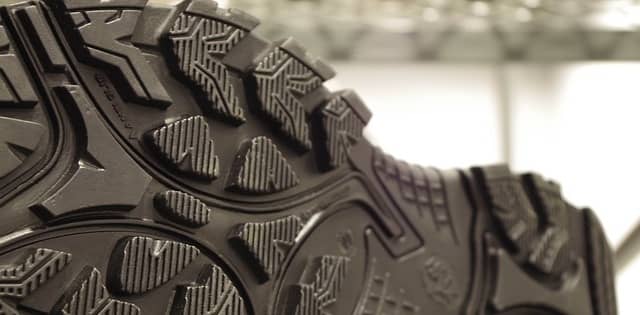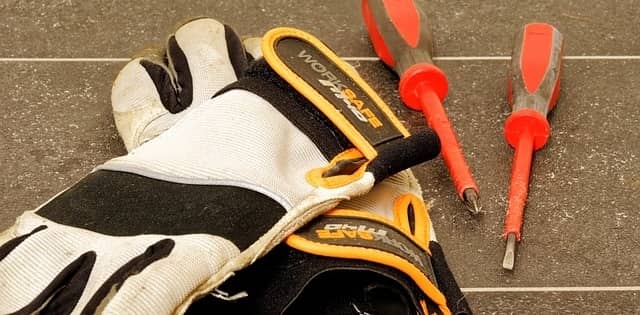You may have seen it happen before in movies and cartoons. Maybe even read about it happening in your favorite novel or comic book. But have you ever seen or heard of it happening in real life? Do rubber boots actually prevent electrocution? I’ve done some digging to unearth the evidence needed to support this claim.
I’ve never been electrocuted myself (yet) and don’t plan on doing so anytime soon. However, it would be handy to know if wearing rubber boots can help prevent it from ever happening to me. Electricity is something we use everyday without ever really thinking twice about the dangers it can cause. However, for those in certain professions who are exposed to electrical wires it’s something they deal with every day.
Whether you’re an electrician, work on a construction site or just like to get involved in the odd DIY job around the house, this article will provide you with all you need to know about rubber boots and electrical hazards.
The short answer is: yes, rubber soled boots CAN prevent you from being electrocuted. However, just because you’re wearing a pair of rubber boots doesn’t mean that you’ll be safe from any risk of electrocution. There’s a bit more to it, as I’ll explain below.

Why do people wear rubber sole boots?
Firstly, I think it’s important to classify why people wear rubber sole boots in the first place. I’m guessing fashion isn’t the answer here, and avoiding electrical shocks definitely isn’t the main answer either. There are a number of reasons why those working in building or construction choose to wear work boots with rubber soles.
One of the main reasons is that rubber is super lightweight and soft on your feet. Working long hours on a construction site is tough on the body; this would be made all the more worse if you also had to deal with sore feet! While we’re walking, sitting or standing, the pressure of our body weight always lands on our feet.
Rubber soled boots also have great traction and grip, making them perfect for a construction site where there are plenty of dangerous tools and trip hazards to watch out for. If it’s raining out, rubber soles also make it easier to walk on wet ground or even snow.
So while preventing electrical shocks may not be the main reason people wear rubber sole boots, that doesn’t mean it isn’t still true right?

So how does rubber prevent an electrical shock?
If you did wake up one morning and decided you’d like to grab hold of a power line (not recommended) and you WEREN’T wearing rubber soled boots, here’s what would happen. The electric current would travel through your body towards the ground and cause you to be electrocuted. This is because you are “grounded”. Meaning you have your feet on the ground while touching the power line. I’ll get into the specifics of this later on.
Now let’s say you happened to be wearing rubber soled boots at the time (still not recommended). The electric current would still travel through your body however it wouldn’t get to the ground as your rubber soles would stop you being “grounded”. How you ask? Rubber is an insulator, meaning that the material denies any electrical charge flowing through it.
This makes sense when you think about it. Any material that doesn’t allow electricity to pass through it is called an insulator. This is why majority of powerlines are covered in rubber, its why electricians wear rubber gloves AND most importantly it’s why rubber boots can prevent electrocution.
So based on this, rubber soled boots CAN prevent you from being electrocuted. To explain how this works in more detail let’s look at an example we see everyday.

The bird on the powerline example
As mentioned above, as long as you’re insulated from the ground, and there’s no path for the electric current to make its way through, you won’t feel the full impact of an electric shock. This is because electricity requires a complete path or circuit to flow. If there aren’t two contact points on the body for the electric current to enter and exit there will be no shock.
The best way to describe this is with a bird on a powerline example. We always see birds sitting on powerlines without getting shocked. How do they do it? They’re sitting on high voltage electrical wires, however because there is no path for the electricity to touch the earth through the bird, they are fine as there is no current flowing. They’re making contact with the circuit at only one point.
Unfortunately, we’re humans not birds, and when a human touches an electrical wire they’re more than likely standing on the ground. As mentioned above, this results in the person touching the wire and making contact between two points in the circuit, the wire and the ground. Zap. Ouch. Dead.

Rubber boots won’t make you invincible to electrocution!
From what you’ve read so far you might be thinking that rubber boots make you invincible around electricity. WRONG. There are a number of variables you need to consider.
The above scenarios are only true if it is just your rubber boots touching the ground and no other part of your body. If your arm, knee, ear lobe (unlikely) or any other body part is touching the ground you will still feel the full force of the electric shock. I’ve never been shocked before, but I assume it’s not very fun!
The other variable to take into consideration is water. Many electric shocks happen on construction sites, which can be plagued with puddles or pipe leaks. If you’ve stepped in that water, it’s possible for the electric current to pass through it and around your rubber boot, giving you a nasty electric surprise.
You also need to ensure that your rubber boots have no holes or tears in them. Even the slightest tear can create a path to the ground for the electrical current which will result in you getting shocked. Also beware of cheaper rubber boots which could be mixed with cheaper materials and won’t protect you.
The thickness of your rubber sole also needs to be taken into consideration. Most rubber boots aren’t designed to be electrically safe. In this case the soles of the boot might be too thin and not the right material or substance to withstand an electrical shock. You need rubber boots that are specifically made for electrical work otherwise there is no guarantee that the electrical shock will be prevented. CLICK HERE for rubber boots we recommend that are designed with electrical safety in mind.
Key Takeaways
We are not birds. Birds avoid getting shocked when they sit on wires as contact is only being made at one point of the circuit. When humans touch a wire while standing on the ground, a circuit is formed, and pain ensues. Unless you’re wearing rubber soled boots that is.
Water is not your friend when it comes to electricity. Even with rubber boots.
Ensure you have good quality rubber soled boots. Cheap won’t cut it.

Can rubber gloves also prevent electrocution?
Similar to rubber boots, rubber gloves can also prevent electrical shocks. As long as they are insulated rubber gloves and have leather protectors you stand a decent chance of avoiding serious damage from electrocution. However similar to the rubber boots, you need to take into consideration variables such as material quality, tears in the gloves, and the exposure of water.
Conclusion:
So can rubber boots prevent electrocution? In theory, yes it could save your life. However, that doesn’t mean I would recommend running around grabbing electrical wires just because you’re wearing rubber. While rubber soled boots can definitely prevent electrical shocks, there are too many variables in play to call it a safe-proof method. Tread carefully!
